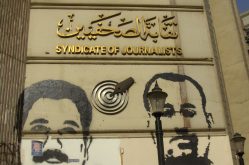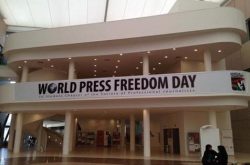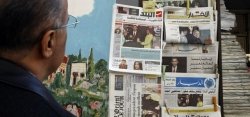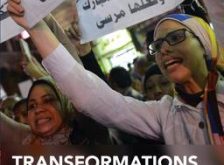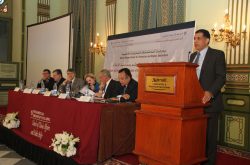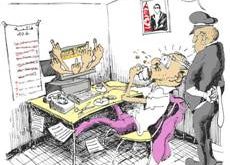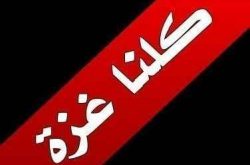The Arab uprisings of 2011 triggered a wave of discourse on media and social movements. As interest grew, so did questions about the scope and impact of media, particularly new media, on the events that unfolded. In the three years since the upheaval began, AMS has been home to robust analysis of events from across the region. In the pages of this special print edition you will find a selection of articles primarily from our archives. For more information, including how to acquire a copy, please click the title link.
Read More »Is Informationalization Good for the Middle East?
In a thought-provoking essay, Jon W. Anderson poses the question: Is informationalization good for the Middle East? The notion evolves through a wealth of data, fresh comparisons and insight into factors such as telecom infrastructure, the monetization of data, the extraction of value upward, and how labor is valued in an informationalized economy.
Read More »A Revolutionary Role or a Remnant of the Past? The Future of the Egyptian Journalist Syndicate after the January 25th Revolution
Miriam Berger reports on change and stagnation at the Egyptian Journalist Syndicate, Egypt’s only official journalist union. Through interviews with syndicate members and media observers, she paints a granular picture of how efforts to reform the syndicate remain blocked by entrenched political, economic and state interests.
Read More »Two Years in Abu Dhabi: Adventures teaching journalism in the UAE during the Arab Spring
Matt Duffy reflects on the state of journalism education in the United Arab Emirates before and after the Arab spring. His experience as a communications professor at Zayed University, followed by his unexplained expulsion from the UAE, reaffirms the increasingly bleak environment for media freedoms in the region.
Read More »The Myth of Media Freedom in Lebanon
Nabil Dajani critiques the perception that Lebanon enjoys one of the freest media systems in the Arab world, showing how its foundations in confessional politics and business interests prevent it from functioning as a public service, a control on power, or a voice for the voiceless.
Read More »International Media and Local Programming: The Case of Kuwait
At a time when Hollywood movies are a global commodity, Mohamed Satti studies the extent of their impact on cinema and television in Kuwait. He shows that while American films dominate the movie theaters, local production of television content continues to be strong.
Read More »Book Review: Transformations in Egyptian Journalism
Naomi Sakr’s survey of the state of post-revolution Egyptian journalism shows how, in spite of notable advances, it is still beholden to Mubarak-era strictures and practices. Mohammed el-Nawawy calls the book timely and valuable as a snapshot of a transformed but still evolving situation.
Read More »Report: The American University in Cairo’s Conference on Egypt and International Models of Regulation and Accountability
Egypt’s broadcast media is widely seen as unruly and in need of regulation, with the rights and responsibilities of journalists still unclear two years after the revolution. Mark Visonà reports on the recommendations of a recent conference, hosted by the American University of Cairo, on how to build a regulatory framework. The conference, “Egypt and International Models of Broadcast Regulation and Accountability,” featured guest speakers from the United Kingdom, Germany, France, the United States, Tunisia, Libya, and Morocco.
Read More »From TUNeZINE to Nhar 3la 3mmar: A Reconsideration of the Role of Bloggers in Tunisia’s Revolution
Amy Kallander delves into the world of Tunisia’s educated and upper-middle class bloggers to reveal a more nuanced picture of their role in the Tunisian revolution. Reviewing the country’s unique history of Internet activism and government censorship, she finds that their impact was not only more limited than western media accounts claimed, but in many ways, more interesting.
Read More »Online Mobilization in Times of Conflict: A Framing-Analysis Perspective
Well before social media’s celebrated role in the uprisings of the Arab Spring, Mohamed Ben Moussa argues, the Internet was shaping collective action and political advocacy in Muslim-majority societies in important ways. Looking at Moroccan social movements’ framing of the 2009 Gaza war online, Ben Moussa details how the use of the Internet shapes their structure, boundaries and mobilization capacity.
Read More » Arab Media & Society The Arab Media Hub
Arab Media & Society The Arab Media Hub

